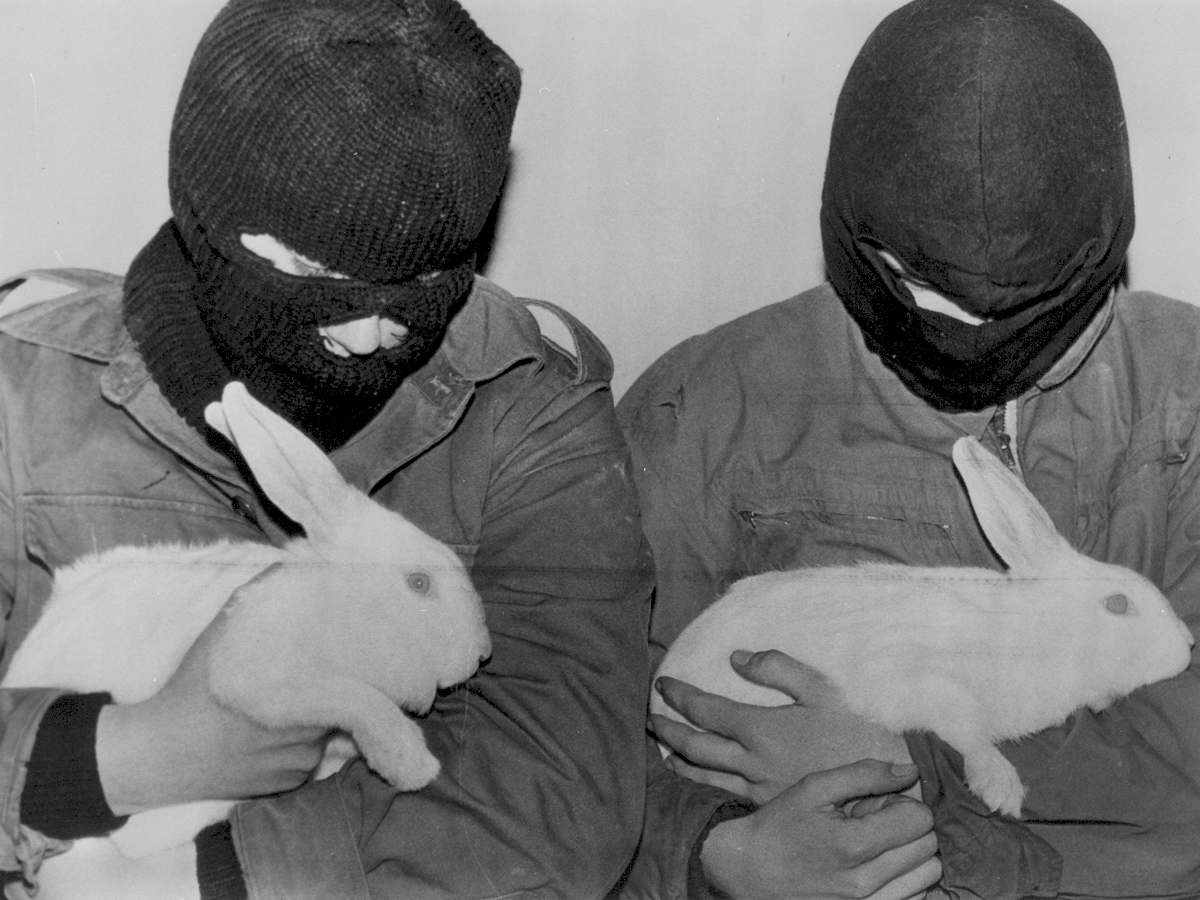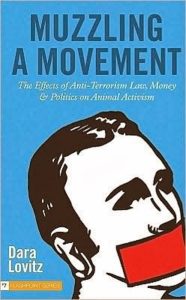The following literature review is part of a series for World Vegan Month. Other essays can be accessed by visiting the essays catalog.
Dara Lovitz. 2010. Muzzling a Movement: The Effects of Anti-Terrorism Laws, Money & Politics on Animal Activism. Brooklyn, NY: Lantern Books.
Animal activists have been agitating for change for some time and, for the most part, do so nonviolently. Nonetheless, the threatening tactics preferred by some activists has created a convenient excuse for the state’s anti-terrorism campaign to protect the billion dollar Nonhuman Animal agriculture industries.
These countermovement forces also permeate the media (which is an institution created by elites to protect elite interests). Vegan messages are either censored altogether or skewed to protect the status quo of speciesism. Lovitz wonders that the fear of government monitoring is pressuring activists to self-censor.
The book’s primary focus is the power of elites who have controlled legislation and influenced politics, ensuring that litigation to help other animals largely fails. She gives the examples of anti-cruelty codes that exempt food animals, hunter harassment laws, and food disparagement laws. Interfering with the business of Nonhuman Animal exploitation is legally impossible.
The Animal Enterprise Terrorism Act (AETA) was changed from “Animal Enterprise Protection Act,” thus giving federal agencies the authority to arrest, prosecute, and convict anyone who poses a threat to speciesist industries. Alarmingly, the AETA criminalizes consumer-based activism (such as vegan outreach) that is intended to reduce the profits of these industries:
The sloppy and unfair use of the label terrorist in our modern society has harrowed a large group of would-be activists and discouraged them from participation in legal protests or from speaking out at all on behalf of nonhuman animals (105).
The terrorist label, she explains, gives the government a legitimate reason to violate freedom of speech.
While Lovitz applies these concerns to all activism, peaceful or not, she specifically looks at the activities of activists who utilize illegal and violent tactics. It is my interpretation that these types of activities incite state repression, giving the state (and the public) ample excuse to label all anti-speciesists as threats. To explain this point, she details the SHAC 7 case in which activists had been jailed for firebombing the homes of those involved with vivisection. Repressive laws influenced by industry elites and enforced by the state work in union with the non-profit industrial complex to severely curtail mobilization power.
Readers can learn more about state repression and its consequences for anti-speciesism in my 2016 publication, A Rational Approach to Animal Rights.
This essay was originally published on The Academic Activist Vegan on November 15, 2013.


